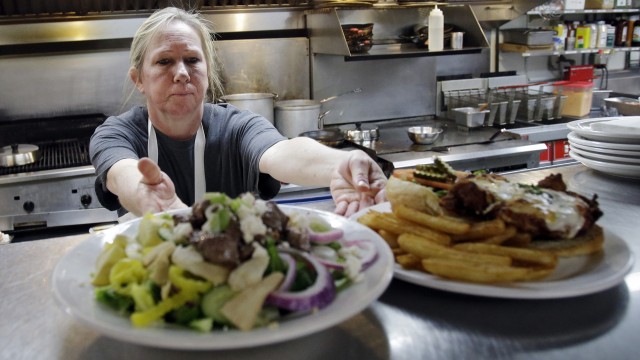This post first appeared at TalkPoverty.org

In the debate about poverty and rising economic inequality, we need to think beyond the minimum wage.
When we talk about poverty it’s difficult to track — and give voice to — all of the different ideas around causes and solutions that need attention. Multiply those competing demands exponentially and you may get a feel for what working people in some of the fastest-growing job sectors in our economy face every day.
Shift workers — especially those in the retail sector — are subject to unpredictable and erratic scheduling practices that make it nearly impossible to plan their lives and earn a stable income. An increasing number of these workers simply aren’t able to get the hours they need in order to support their families. They are essentially trapped in a cycle of poverty, with little time or resources to make any progress toward escaping it.
These are workers who aren’t living paycheck to paycheck; they’re living hour to hour.
How can people working under these conditions set a budget? How do they schedule medical appointments or arrange care for their children? In addition to dealing with their erratic schedules, retail workers are often required to be on call — making sure they are available without any guarantee of a shift.
So while increasing the minimum wage is indeed a critical step in the fight against poverty, it is just one piece of a much larger, broken system in the low-wage sector.
That’s why the Schedules That Work Act — introduced last month by Representatives George Miller (D-CA) and Rosa DeLauro (D-CT), along with Senators Tom Harkin (D-IA) and Elizabeth Warren (D-MA) — is so critical. It would allow every worker to have a say in their schedules — whether someone is experiencing erratic shifts, or too many hours, or needs a schedule accommodation in order to meet an obligation. By giving workers the right to request a predictable or flexible schedule, this legislation would increase job quality in our country.
At the local level, city and state governments are also demanding that the largest, most profitable retail corporations do right by their workers.
Last week, Jobs With Justice San Francisco led a coalition of labor, community, advocacy and small-business groups in introducing a groundbreaking Retail Workers Bill of Rights ordinance. The measure, authored by San Francisco Board of Supervisors members Eric Mar and David Chiu, would create new protections for retail workers who are burdened with on-call scheduling and diminished hours. The ordinance would only apply to profitable, large chain retailers — banks, fast food and restaurant chains, department stores — companies that clearly have the means to improve labor standards. If adopted, the bill would require fair scheduling practices like advance notice, adequate on-call pay and more opportunities for part-time workers to transition to full time-employment. It would also require employers to offer more hours to current part-time employees prior to hiring additional part-time staff.
Without these kinds of reforms to scheduling and hours in the low-wage sector, we will continue to have too many people working two and three jobs but stuck below the poverty line. Nationwide, nearly eight million people are involuntarily working part-time hours. That leaves them vulnerable to poverty — nearly one in four involuntarily part-time workers lives in poverty, compared to one in 20 full-time workers. These low-quality jobs also impact the broader community because employers shift costs — particularly for health care for their workers — to our already overburdened public systems.
We need 21st-century policies to address the new 21st-century workplace. Efforts like the Schedules That Work Act and the Retail Workers Bill of Rights are more than just commonsense bills; they are innovative ways to address poverty and inequality in our communities.
The views expressed in this post are the author’s alone, and presented here to offer a variety of perspectives to our readers.


